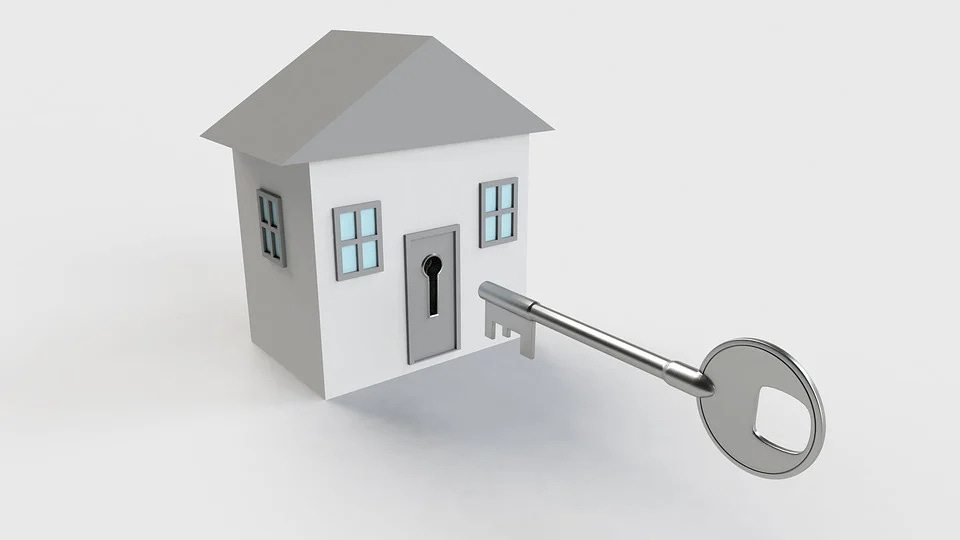Bitcoin Beginners: Public and Private Keys
The Bitcoin Wars Part IX
"The secret to getting ahead is getting started." -Mark Twain
A retired Texas physician and RTE reader wrote to me recently. He told me that he is willing to learn about Bitcoin, but does not know where to start. I gave him a link to this highly incomplete, but educational Bitcoin guide that I wrote last year (call it 10-15% complete). But I decided that I would start sprinkling some very quick and basic Bitcoin lessons into my writing.
Unbeknownst to most people who just start learning about Bitcoin, the technical language obscures a lot of simple ideas. Walking through these concepts should help clarify just what Bitcoin is for many people.
Today we're going to talk about "public-key cryptography" (a.k.a. "asymmetric cryptography"). This is a vast topic, but we're just going to talk about the part that a basic Bitcoin user needs to know about. Perhaps another day when I'm no longer working on pandemic statistics, I'll write up some lessons on number theory building up to the implementation of such cryptographic methods, but that's entirely unnecessary for the basic use of Bitcoin. In fact, I'll tell you a little secret: most of the people I've met in the Bitcoin community who talk a good game with respect to cryptography don't actually understand the mathematics of it. But they're excited about it, and they understand that cryptography protects access to information. And that's okay because cryptography can get extremely deep, challenging even the world's best mathematicians and computer scientists at the investigative end.
Lock and Key: Address and Password
"Not your keys, not your coin." -Every Bitcoiner Who Gets It
Let's begin with the concept of a lock with a key. Simple enough. I don't even have to explain it.
Now, instead of a lock, imagine an address. It could be
123 Simple Road
Crazyland, CA 54321
Maybe that's the address of the home where you keep a locked safe with your valuables: some cash, gold and silver coins, valuable jewelry, a copy of Rounding the Earth essays, etc.
Now, forget about what's in the safe. Let's just say that everything in there is worth 1.73 BTC (BTC = Bitcoin, like USD = U.S. dollars). Let's also forget about the address of your home and replace it with an alphanumeric string (numbers and letters), like
34xp4vRoCGJym3xR7yCVPFHoCNxv4Twseo
That 34-character string happens to be the "address" of the largest Bitcoin exchange wallet in the world with nearly $12 billion worth of Bitcoin (252,597 BTC). It "belongs" to the Binance exchange where numerous cryptocurrencies are traded, just like stocks are traded at the New York Stock Exchange. Like all Bitcoin addresses, that alphanumeric string is public. Everyone can see it—just like the post office can find your street address.
Technically, the 34-digit string is a compressed address. The real address can be 160 (binary) characters long, but that's impractical to use for most purposes, so converting that binary number to a numeric base with many more digits, we obtain a compressed representation of the address. But ultimately, an address is just a number.
How many of these address numbers are there?
It's a 49-digit decimal integer, so when you obtain an address, you can be pretty darn certain that you're the first human to have ever obtained that address. It's a new house, so to speak, and nobody could have held, but much less replicated the key to the lock.
Speaking of keys…if you want to move (spend) any of the Bitcoin in an address, you'll need a password.
That seems reasonable.
The password is like the key to the safe at the house at the address. Or, more simply,
Public key = address (alphanumeric string) = safe with lock
Private key = password (alphanumeric string) = key
On a practical level, when you spend Bitcoin, you enter your private key (password; also a long string of numbers and letters) into a wallet (program/application/device connected to the internet) that has your public key (address) loaded onto it. You tell the application the address to which you want to send your BTC, and *poof* some magic happens that involves the movement of your chosen amount of BTC to the receiver's address. It's not really magic. It's all in the code.
Ultimately, this is not much different than online banking. The difference between Bitcoin and digital dollars moving around a network has more to do with the definition of the network than the procedure. The Bitcoin network employs public-key cryptography as one of several important security features. Your bank employs cryptography to get into its system, too. They just don't fill the air with fancy phrases like, "Your address is a 160-bit hash of the public portion of a public/private ECDSA keypair." The bank makes it simple enough for all users. The Bitcoiners could learn from that, but we're still in the phase where half the Bitcoiners want to sound like gurus, so they use unnecessarily technical speech. You'll have to forgive them. They know not what they doodoo.
Don't Lose Your Password
"Lost coins only make everyone else's coins worth slightly more. Think of it as a donation to everyone." -Satoshi Nakamoto
A few words of warning:
Do not lose your private key (password). By design, there is nobody who can recover it for you (except in rare cases where it's stored somewhere a technician can access).
I am not your financial advisor. Don't blame me for anything that happens with your money. (But I appreciate subscriptions if my content is educational.)
Never ever bet on the San Diego Padres to win a World Series. Do I need to explain this?
Richie Rich Bitcoiners
"As iron is eaten away by rust, so the envious are consumed by their own passion." -Antisthenes
The public key (address) that I used as an example is on a list of the "richest" bitcoin wallets found at bitinfocharts.com. Have fun with that. Just don't get jealous of the exchange managers and early adopters. Remember that the point is to learn, participate in a fair economic game, and hopefully have fun along the way. Besides, the Bitcoin network is in the toddler stage, now. It walks and talks, but it's sort of cute and funny to watch. If you invest in it, and it succeeds, the rewards from this point can still be astounding at maturity. At the very least, it could be a hedge against inflation in a troubling economic environment.





This is magnificently important!
More like this, please!